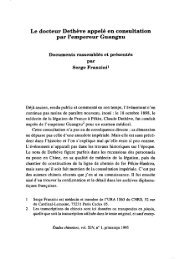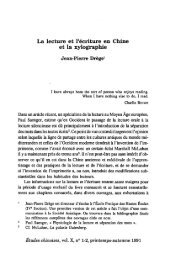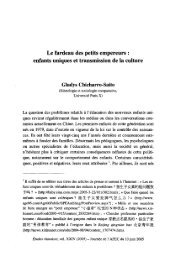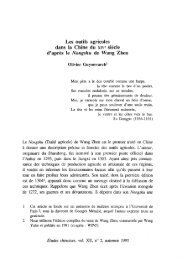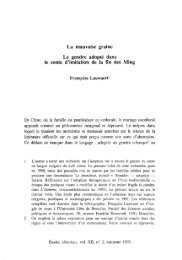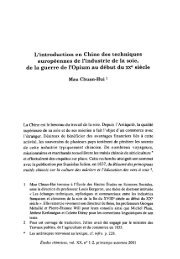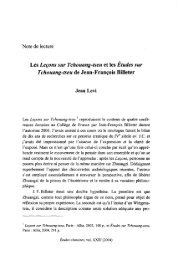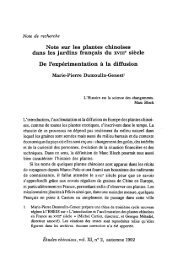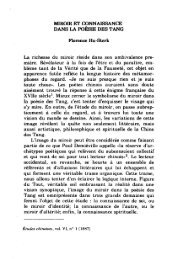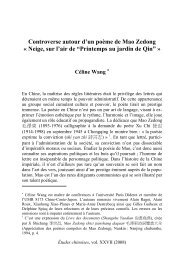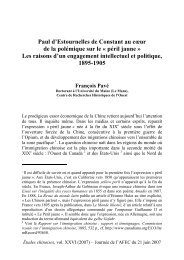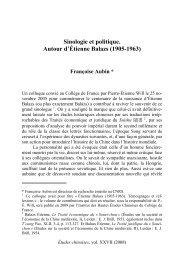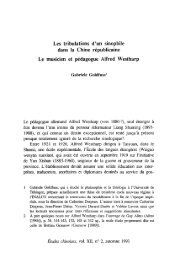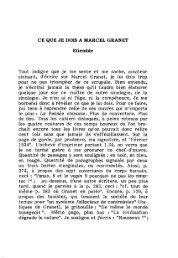Create successful ePaper yourself
Turn your PDF publications into a flip-book with our unique Google optimized e-Paper software.
Comptes rendus<br />
came about that in the sixteenth century "Suzhou's traditional markets<br />
were saturated, its traditional specialties faced increasing compétition, its<br />
merchant networks were decaying, and a hungrier, more agile group of<br />
competitors was better placed to exploit emerging opportunities" (p. 198),<br />
even while Suzhou presumably remained the center of the Chinese world<br />
System.<br />
Thus, I don't think that Marmé convincingly demonstrates that<br />
Suzhou was the undisputed center of a "world system." And in fact, comparisons<br />
with other candidate cities are conspicuously lacking. To some<br />
extent, Marmé shows only how, against the spécifie background of the<br />
Ming financial structure, a commercial city could develop in Jiangnan, but<br />
what made Suzhou différent from other cities such as Jiading, Songjiang,<br />
or even Nanjing, remains undiscussed.<br />
Now, Suzhou is, of course, much more than just an économie center,<br />
as Marmé himself acknowledges: Suzhou is and was traditionally also<br />
seen as either "the epitome of sophistication or as the nadir of décadence."<br />
However, the history of the cultural and social dominance of Suzhou and<br />
its urban society (and hère the word "dominance" is, I think, not too strong<br />
to use), is not at the center of Marmé's book; it should be the subject of a<br />
book another author should write. Yet, I am not sure that Marmé is as fully<br />
aware as he could hâve been of the implications of this cultural and social<br />
dominance of Suzhou on other parts of China, not in the least on the capital,<br />
including its politicians. It seems that for Marmé the opposition between<br />
on the one hand the state and on the other hand Suzhou society is<br />
almost absolute. We do not find in this book the local Suzhou élite, including<br />
current and ex-officials, influencing officiais at court on behalf of their<br />
own group, such as we know was fréquent from other sources: Marmé<br />
does not really look for such links between court and local society, even<br />
not when at one instance he points out that a leading Suzhou scholaroffïcial<br />
played a prominent rôle in the restoration of Zhu Qizhen (i.e.<br />
Yingzong). Mirroring the lack of detailed discussion of Suzhou merchants<br />
outside Suzhou, there is hardly any mention of the présence of Suzhou<br />
people at the capital, in the government, or as magistrates elsewhere.<br />
(There is one particularly deliciously put sentence, though, in one of<br />
421



